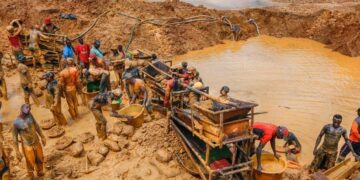The Unexpected Impact of Fukushima on Jun Endo
Jun Endo’s love for football changed after the 2011 Fukushima nuclear disaster in Japan. At just 10 years old, she had to practice indoors. She used any space she could find—her home, gyms, or hallways. The disaster made it unsafe to play outside because of radiation concerns that lasted for months. But Jun kept chasing her dream of becoming a football player, even if it meant being stuck inside.
Facing Challenges Alone
While her friends, like 23-year-old Ellie Carpenter, trained on fields worldwide, Jun had to get creative. Outdoor play was not an option for her. The nuclear disaster followed a huge earthquake and menacing tsunami. It was a devastating time for Japan. Over 19,000 people lost their lives, and the cooling systems at the Fukushima plant failed. This was one of the worst nuclear events ever.
Even though Jun’s family lived outside the evacuation zone, they still struggled with the tough rules about radiation. She practiced in tiny indoor spaces. “I liked dribbling before, but I liked it even more during that time,” she shared in an interview. Despite the tough situation, she tried to focus on improving her skills.
Discrimination and Struggles
Whenever Jun traveled for games, more challenges came her way. Young players from Fukushima, including her, faced discrimination. Some people acted like they were radioactive. “People would say nasty things to us during tours,” she remembered. Many refused to buy products from Fukushima, making them feel even more alone. This harsh treatment made Jun think about her future in football.
A Spark from National Success
But then something inspiring happened. In 2011, just four months after the disaster, Japan’s women’s football team, Nadeshiko, won the World Cup in Germany. Watching them succeed, especially their nail-biting win against the United States, lit a fire in Jun. “I couldn’t play because of the disaster, but right when I thought about quitting, Japan won the World Cup,” she explained. This victory lifted the spirits of the whole country and gave her a reason to keep playing.
The team’s success gave her hope and reignited her passion for football. Jun was determined to follow in their footsteps. “I felt like football wasn’t fun anymore. But seeing athletes win the World Cup made a big impact on me,” she said. That moment pushed her to join the JFA Academy Fukushima LSC when she was just 12 years old, setting her on the path to becoming a professional player.
A Bright Future
Jun’s hard work paid off. After dedicating years to training, she made it to Japan’s under-20 World Cup team. Later, she joined Tokyo Verdy Beleza in the WE League. At 18, she played for Japan’s senior national team and took part in the 2019 World Cup in France. She played in three matches there. Now, she’s with Angel City in the NWSL, getting ready for her second World Cup, aiming for a better outcome than in 2019 or the Tokyo Olympics.
Jun Endo’s journey—from the aftermath of Fukushima to the global football scene—shows her strength and determination. As Japan works to regain its former success, her story will inspire many teammates and fans.























